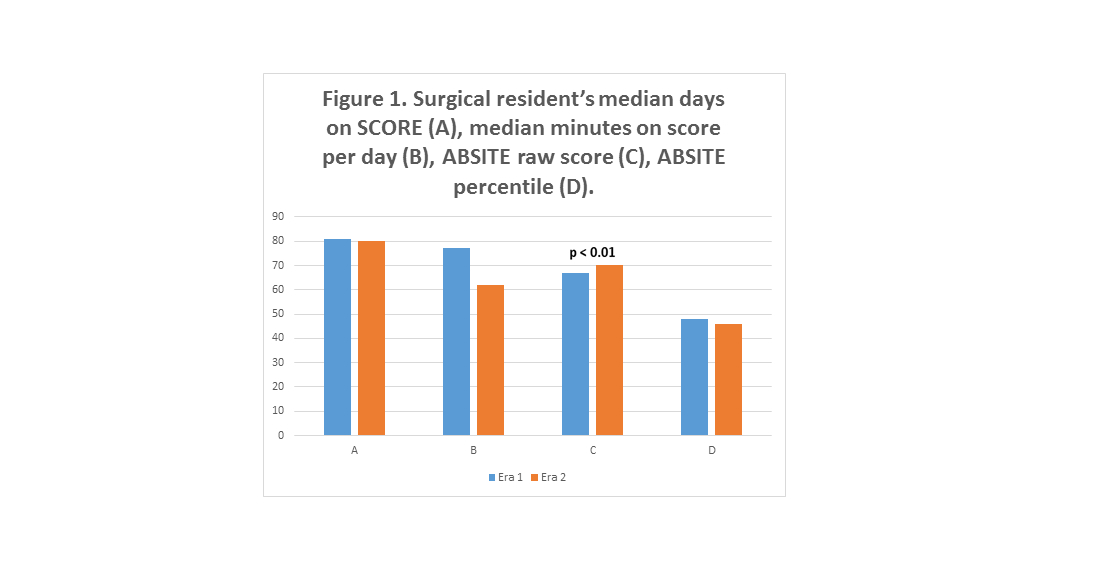Effect of COVID-19 On General Surgery Residency Education: A Retrospective Analysis of Resident Performance and Resource Utilization
Andrew Kemerley1, Oscar Serrano2
1Surgery, University of Connecticut, Farmington, Connecticut, United States, 2Surgery, Hartford Hospital, Hartford, Connecticut, United States
OBJECTIVE: Evaluate the effect of COVID-19 related educational modifications on surgical resident learning habits and proficiency.
DESIGN: Pre-/post intervention study
SETTING: Large academic general surgery program from March 1, 2019 to February 28, 2021.
SUBJECTS: 30 surgical residents
INTERVENTION: Educational modifications implemented due to COVID-19 social distancing requirements between March 2019 to February 2020 (Era 1) and March 2020 to February 2021 (Era 2).
MAIN OUTCOME MEASURE: Surgical resident American Board of Surgery In-Training Examination (ABSITE) raw score, percentile score, median days spent on Surgical Council on Resident Education (SCORE) website and median minutes per day on SCORE website.
RESULTS: During the study time period, 30 surgical residents were evaluated. The cohort comprised of 27 general surgery categorical and 3 preliminary residents with an average age range of 25-30; 46% were women; 3% were underrepresented minorities; and 16% were international medical graduates. In Era 1, residents logged on the SCORE website for a median (IQR) 81 days (56,98) and spent a median time of 77 (36,157) minutes per day; whereas in Era 2, they logged on for 80 (46,124) days with median time of 62 (39,128) minutes per day (p = 0.81, 0.18, respectively) (Figure 1A,B). ABSITE percentile scores during the 2 eras did not significantly differ, with a median (IQR) of 48%ile (26,69) in Era 1 and 46%ile (15,61) in Era 2 (p=0.08); however, ABSITE raw scores increased significantly from 67 (59,75) in Era 1 to 70 (67,78) in Era 2 (p<0.01) (Figure 1C, D).
CONCLUSION: Surgical resident resource utilization or performance did not appear to increase during the COVID-19 pandemic despite increased allotted study time. Further research into optimal surgical resident self-education is warranted to better understand how these educational tools can improve surgical fund of knowledge.
Back to 2021 Posters
